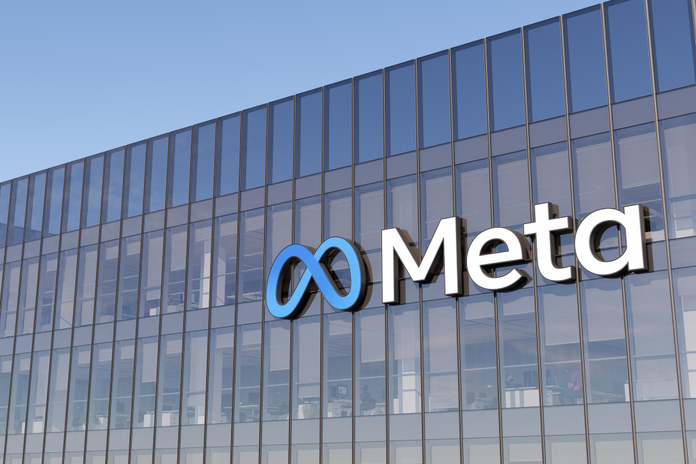Meta Platforms Inc. (NASDAQ:META) has declined to join the European Union’s voluntary AI safety pledge, a decision that contrasts sharply with other tech giants like Microsoft (NASDAQ:MSFT) and Alphabet’s Google (NASDAQ:GOOGL). The EU introduced the non-binding Meta AI regulation initiative as a temporary measure until its comprehensive AI Act comes into full effect in 2027. The refusal to join this initiative signals Meta’s cautious approach toward European regulatory standards, particularly due to the unique challenges posed by its open-source AI model, LLaMA.
What Is the EU AI Safety Pledge?
The European Union’s AI safety pledge is a voluntary initiative designed to ensure that tech companies adhere to key principles of the forthcoming AI Act. The pledge encourages companies to adopt measures such as assessing whether their AI models could be deployed in “high-risk” situations, like employment, education, or law enforcement. The goal is to create a framework for responsible AI development without stifling innovation.
Although not legally binding, the AI safety pledge is seen as a way for companies to build trust with customers, investors, and regulators. For those that join, it offers an opportunity to stay ahead of stricter regulations and avoid public scrutiny from the EU, which has previously “named and shamed” non-compliant companies.
Meta’s Unique Challenges with AI Regulation
Meta’s decision to bypass the voluntary AI pledge, at least for now, can be traced back to its open-source AI model, LLaMA. Unlike proprietary AI models from competitors like Microsoft and Google, Meta’s LLaMA allows users to modify and repurpose the technology, offering less control over how it is deployed. This open-source feature presents unique regulatory challenges, especially in the context of the EU’s forthcoming AI regulations.
In a statement, a Meta spokesperson indicated that the company may reconsider joining the Meta AI regulation pledge at a later stage. Meta has cited concerns about the unpredictable nature of the European regulatory landscape, particularly in relation to its open-source model. In July 2023, Meta delayed the launch of its next-generation AI models in the EU, citing similar concerns.
Competitors Take a Different Approach
Meta’s approach diverges from that of other Big Tech companies like Microsoft and Google, both of which have agreed to sign the EU’s AI safety pledge. Microsoft, in particular, has been an active participant in discussions surrounding responsible AI development. Google, which also confirmed its participation in the initiative, continues to emphasize the importance of aligning its AI efforts with regulatory guidelines.
These companies are likely betting that early compliance with the EU’s pledge will pay off in the long term, as the region finalizes its regulatory framework. By signing the pledge, companies like Microsoft and Google are positioning themselves as leaders in responsible AI development, while also reducing the risk of potential conflicts with EU regulators down the road.
Impact of Meta’s Decision
Meta’s refusal to sign the AI safety pledge puts it in the spotlight, particularly given the EU’s history of publicly criticizing tech companies that refuse to engage in voluntary initiatives. Elon Musk’s Twitter, which later became X, made a similar move in 2023 by withdrawing from the EU’s anti-disinformation code of practice. At the time, Thierry Breton, the EU’s tech chief, remarked, “you can run but you can’t hide,” signaling the bloc’s willingness to call out non-compliant firms.
While Meta is not legally required to participate in the AI safety pledge, its decision could invite scrutiny from both regulators and the public. According to Ceyhun Pehlivan, co-lead of tech and intellectual property at Linklaters’ law practice in Madrid, companies that opt out of the initiative may face peer pressure and risk being singled out for their non-participation.
On the flip side, signing the pledge could help companies “build trust among customers, investors, and regulators,” Pehlivan noted, implying that Meta’s stance could carry reputational risks in a highly regulated market like the EU.
The Future of AI Regulation and Meta’s Role
The EU’s AI safety pledge is just the beginning of what will likely be a much more stringent regulatory environment in the years to come. The AI Act, set to be fully implemented by 2027, will place binding requirements on companies developing AI systems, particularly those involved in high-risk applications like healthcare, finance, and public safety.
Meta’s decision to delay the introduction of its next-generation AI models in the EU indicates the complexity of aligning open-source AI technologies with these emerging regulatory standards. While Meta may have the flexibility to join the AI safety pledge at a later date, its current hesitation underscores the challenges it faces in navigating the EU’s evolving regulatory landscape.
Conclusion
As the European Union ramps up its efforts to regulate AI, Meta’s choice to spurn the voluntary AI safety pledge places it in a unique position among Big Tech companies. While Microsoft and Google have committed to the initiative, Meta’s concerns about the regulatory impact on its open-source AI model, LLaMA, have caused it to take a more cautious approach. The coming years will be crucial for Meta as it balances innovation with compliance in an increasingly regulated AI environment.
Featured Image: Megapixl









